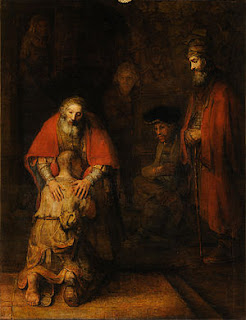At least two things happened, or are happening, this week that struck me and that have implications for how I understand religion and science: 1) I participated in a meeting of the BioLogos Advisory Council (of which I’m a member), and 2) I’m teaching, reading, and watching Shakespeare’s stunning Romeo and Juliet.
Romeo and Juliet on Religion and Science
Let’s start with the Bard and R&J, his tragedy of two “star-crossed lovers” (Prologue, 5) written around 1595, when intellectual giants like Francis Bacon and a young Galileo walked the earth.
In a word, the scientific revolution had begun.
And so had the English Reformation, initiated by the oddest reformer, Henry VIII, who wanted a divorce that the Catholic Church wouldn’t grant. So he left the Church and his wife in order to marry Anne Boleyn. Their daughter, Queen Elizabeth, at the time of R&J,was fully enacting the English reformation that her father, Henry VIII initiated. Religion was changing too.
As I mentioned above, these two young lovers are “star-crossed,” which points to the medieval superstition (still very prevalent then and even today) that the stars directed human life, while also offering a nod to the rapidly expanding astronomy of the day. “Bill” (Shakespeare, that is) and his R&J fall right between Copernicus’s presentation of the heliocentric model in 1543 and Galileo’s defense in the 1620s and ‘30s. Even more, he was part of the growing consciousness that the universe was getting bigger and the medieval world of a “dome” (not entirely unlike a huge planetarium around us) needed to be discarded. This is, of course, what C. S. Lewis named “The Discarded Image.”
Shakespeare stands at this nexus of religion and science and their dramatic changes. That alone makes his work compelling.
“What Does it Mean to Be Human?”
And then BioLogos, the organization begun almost a decade ago by the head of the Human
Genome Initiative, Francis Collins, who know heads the National Institutes of Health (NIH), and has spoken frequently and effectively about his conversation to Christ. I serve on their Advisory Council, and on Monday night, I attended a public event where the Cornell geneticist (and as I understand it, former student of Collins), Praveen Saderpathy addressed the question of “What is does it mean to be human?” He reminded us that it isn’t in our physical makeup since a huge proportion of our DNA is actually virus DNA, gradually integrated into our genome over the millennia and that in our bodies at any given time are a host (likely a host) of billions of non-human bacteria. In the end he pointed to Genesis 1 and God’s call on us to bear the divine image as God’s representatives and stewards on this earth.
In this post, I’m trying to avoid a forced link between these two things, but it does seem like they’re how we as human beings act—like mad lovers who flout convention, representatives of a gracious Creator and Redeemer, or something else? Answering this question led me to conclude that, minimally, we better stick with nature and with our nature. It’s only natural.





